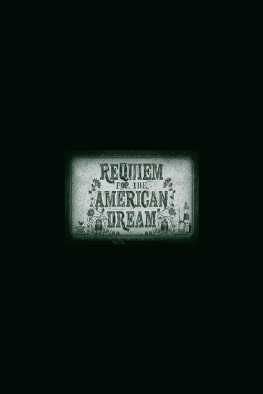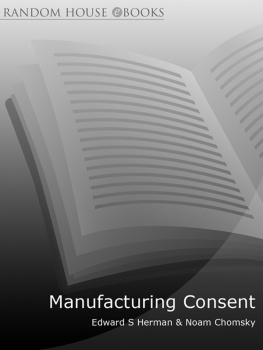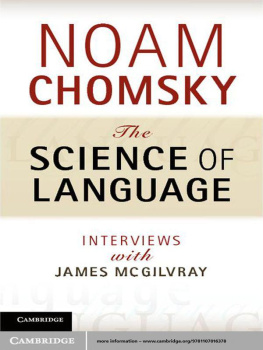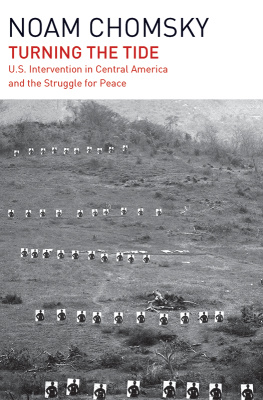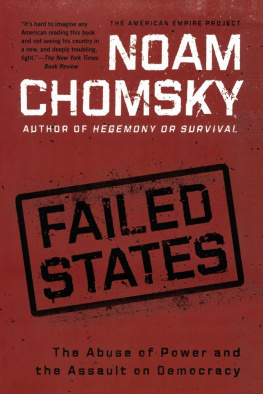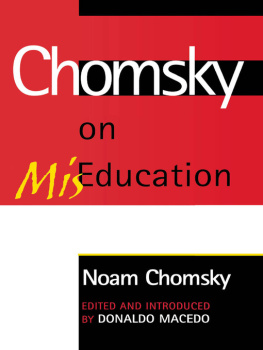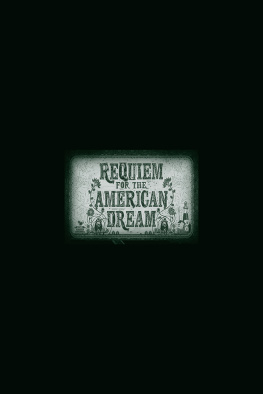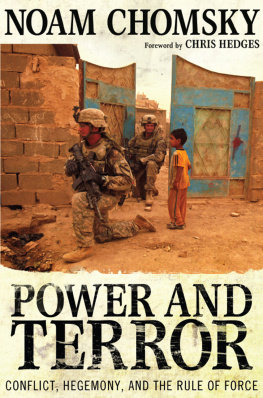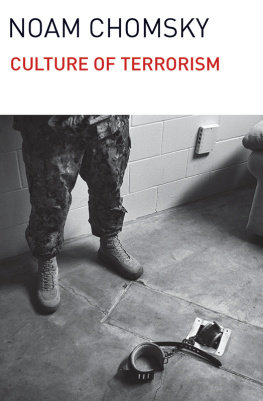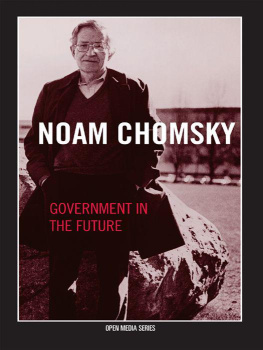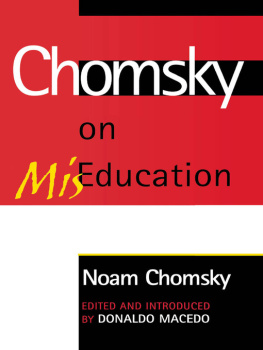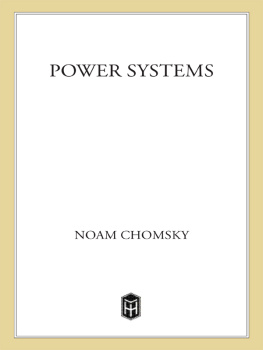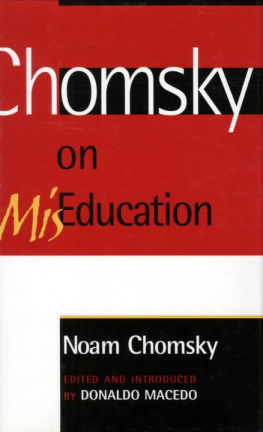All rights reserved.
No part of this book may be reproduced, stored in a retrieval system, or transmitted in any form or by any means, including mechanical, electronic, photocopying, recording, or otherwise, without the prior written permission of the publisher.
College professors may order examination copies of Seven Stories Press titles for free.
To order, visit www.sevenstories.com/textbook or send a fax on school letterhead to (212) 226-1411.
Names: Chomsky, Noam, author.
Title: Requiem for the American dream : the principles of concentrated wealth and power / Noam Chomsky ; edited by Peter Hutchinson, Kelly Nyks and Jared P. Scott.
Description: First edition. | New York: Seven Stories Press, [2017] Identifiers: LCCN 2016054121 (print) | LCCN 2017007176 (ebook) | ISBN 9781609807368 (pbk.) | ISBN 9781609807375 (E-book)
Subjects: LCSH: Income distribution--United States. | Power (Social sciences)--United States.
Classification: LCC HC79.I5 C466 2017 (print) | LCC HC79.I5 (ebook) | DDC 339.2/20973--dc23
LC record available at https://lccn.loc.gov/2016054121
A Note on the American Dream
D URING THE Great Depression, which Im old enough to remember, it was badmuch worse subjectively than today. But there was a sense that well get out of this somehow, an expectation that things were going to get better, maybe we dont have jobs today, but theyll be coming back tomorrow, and we can work together to create a brighter future. This was a time of a lot of political radicalism that would hopefully lead to a different futureone with more justice, equality, freedom, breaking down repressive class structures, and so on. There was just a general sense that this will work out somehow.
Most of my family, for instance, were unemployed working class. The rise of the union movement itself was a reflection of, and a source of, optimism and hopefulness. And thats missing today. Today, theres a general feeling ix that nothings coming backits over.
The American Dream, like most dreams, has large elements of myth to it. Part of the nineteenth-century dream was the Horatio Alger storywere dirt-poor but were going to work hard and well find a way out, which was true to an extent. Take my father, he came in 1913 from a very poor village in eastern Europe. He was able to get a job in a sweatshop in Baltimore, and gradually work himself up to the point where he could go to college, get a degree, and finally even a PhD. He ended up living whats called a middle-class lifestyle. A lot of people could do that. It was possible for immigrants from Europe, in the early days, to achieve a level of wealth, privilege, freedom, and independence that wouldnt have been imaginable in their countries of origin.
By now we simply know that thats not true anymore. Social mobility, in fact, is lower here than it is in Europe. But the dream persists, fostered by propaganda. You hear it in every political speech, vote for me, well get the dream back. They all reiterate it in similar wordsyou even hear it from people who are destroying the dream, whether they know it or not. But the dream has to be sustained, otherwise how are you going to get people in the richest, most powerful country in world history, with extraordinary advantages, to face the reality that they see around them?
Inequality is really unprecedented. If you look at total inequality today, its like the worst periods of American history. But if you refine it more closely, the inequality comes from the extreme wealth in a tiny sector of the population, a fraction of 1 percent.
There were periods like the Gilded Age in the 1890s and the Roaring Twenties and so on, when a situation developed rather similar to this, but the current period is extreme. Because if you look at the wealth distribution, the inequality mostly comes from super-wealthliterally, the top one-tenth of a percent are just super-wealthy. This is the result of over thirty years of a shift in social and economic policy. If you check you find that over the course of these years the government policy has been modified completely against the will of the population to provide enormous benefits to the very rich. And for most of the population, the majority, real incomes have almost stagnated for over thirty years. The middle class in that sense, that unique American sense, is under severe attack.
A significant part of the American Dream is class mobility: Youre born poor, you work hard, you get rich. The idea that it is possible for everyone to get a decent job, buy a home, get a car, have their children go to school...
Its all collapsed.

Introduction
T AKE A look at American society. Imagine yourself looking down from Mars. What do you see?
In the United States, there are professed values like democracy. In a democracy, public opinion is going to have some influence on policy, and then the government carries out actions determined by the population. Thats what democracy means.
Its important to understand that privileged and powerful sectors have never liked democracy and for very good reasons. Democracy puts power into the hands of the general population and takes it away from the privileged and the powerful. Its a principle of concentration of wealth and power.
THE VICIOUS CYCLE
Concentration of wealth yields concentration of power, particularly so as the cost of elections skyrockets, which forces the political parties even more deeply into the pockets of major corporations. This political power quickly translates into legislation that increases the concentration of wealth. So fiscal policy, like tax policy, deregulation, rules of corporate governance, and a whole variety of measurespolitical measures designed to increase the concentration of wealth and poweryields more political power to do the same thing. And thats what weve been seeing. So we have this kind of vicious cycle in progress.
THE VILE MAXIM
I mean, the wealthy always did have an inordinate amount of control over policy. Actually, that goes back centuries. It is so traditional that it was described by Adam Smith in 1776. You read the famous Wealth of Nations. He says, in England, the principal architects of policy are the people who own the societyin his day, merchants and manufacturers. And they make sure that their own interests are very well cared for, however grievous the impact on the people of England, or others. Now its not merchants and manufacturers, its financial institutions and multinational corporations. The people who Adam Smith called the masters of mankindand theyre following the vile maxim, All for ourselves and nothing for anyone else. Theyre just going to pursue policies that benefit them and harm everyone else.

